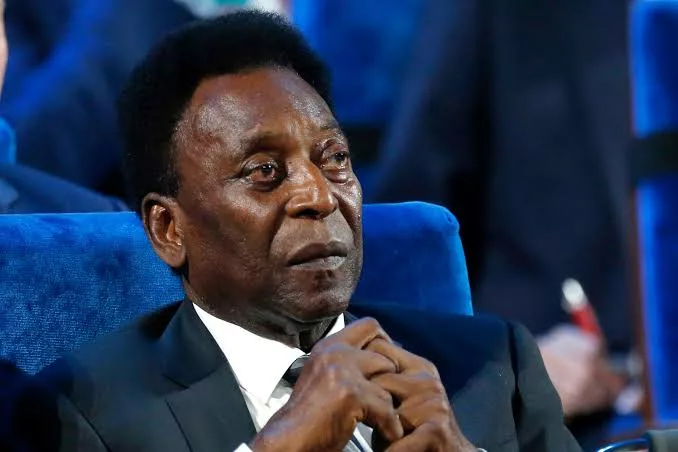Torrents of tributes have been pouring in from all over the world since Edson Arantes do Nascimento, better known as Pelé, regarded as the greatest player of the 20th century, died on Thursday aged 82.
The world’s greatest ever football player succumbed to death after suffering a debilitating bout of cancer. He won three World Cups and scored over 1,281 goals, becoming the original football icon in a long career for which he was named the “Player of the Century” in the year 2000.
Pele’s death is coming two years after Diego Maradona’s demise, a man who is also widely regarded as one of the greatest ever players.
In its tribute, FIFA said Pele was simply “immortal. For everyone who loves the beautiful game, this is the day we never wanted to come, the day we lost Pele,” FIFA President Gianni Infantino said in a statement.
On his part, President Muhammadu Buhari said Pele made a huge contribution to the development of global football in particular and world sport in general. The president also said Pele built bridges across nations, races and even religions. He was a UN Ambassador of goodwill.
“Pele is gone but the world will never forget him. RIP,” said Buhari.
European football’s governing body, UEFA, praised Pele for his part in football’s popularity.
“He was the first global superstar of the game. Rest in peace, Pele.”
Former US President Barack Obama said Pele was one of the greatest to ever play the beautiful game. and that as one of the most recognisable athletes in the world, he understood the power of sports to bring people together.
Pelé is a name that is synonymous with soccer, and for good reason; his contributions to the game are immeasurable.
He was born in Tres Coracoes, Brazil in 1940. From a young age, it was clear that he had a special talent for soccer. He joined his first team at the age of 15, and it wasn’t long before he was making waves in the Brazilian league.
Pelé’s breakout moment came at the 1958 World Cup in Sweden, where he helped lead Brazil to victory at the tender age of 17. He scored six goals in the tournament, including two in the final against Sweden, and was named the best player of the tournament.
Over the course of his career, Pelé played for several clubs, including Santos and the New York Cosmos.
He is the all-time leading goal scorer for the Brazilian national team, with 77 goals in 92 appearances. He is also the all-time leading scorer in the Brazilian league, with 619 goals in 656 appearances.
But Pelé’s impact on soccer goes far beyond his impressive statistics. He was a trailblazer for the sport, helping to popularise soccer in countries where it had previously been overshadowed by other sports. His electrifying style of play, combined with his humble and gracious personality, made him a beloved figure around the world.
Pelé’s influence extended beyond the soccer pitch as well. He used his platform to promote social causes, including the fight against poverty and discrimination. He was also a successful businessman, with ventures in everything from sports management to music.
Nigerian football fraternity can vividly remember that Pele visited Nigeria three times. One of those came in the form of an African tour in 1969. Matches in Nigeria, The Congo, Algeria, Mozambique and Ghana were booked.
The match would end 2-2 with Pele grabbing a brace and Muyiwa Oshode and Baba Alli scoring for Nigeria.
He was also in Benin in January 1969. His club side, Santos, won 2-1 and Pele failed to get on the scoresheet, causing disappointment for the traveling fans.
There was also reports that there was ceasefire in the civil war in Nigeria when Pele visited Nigeria.
Similarly, he was in Lagos in February, 1976. Pele came to Lagos in his role as a Pepsi brand ambassador to partake in an exhibition match.
In 1999, Pelé was named the FIFA Player of the Century, an honour that was bestowed upon him by both the International Olympic Committee and the Federation of International Football Association (FIFA).
In a career that spanned more than 20 years, Pelé won numerous accolades and achievements, including three World Cup titles and numerous individual awards.
But perhaps the most enduring legacy of Pelé is the way in which he inspired countless young people to take up the sport. His talent and passion for soccer were infectious, and he continues to be an inspiration for aspiring soccer players around the world.
Pelé was more than just a great soccer player. He was a cultural icon, a philanthropist, and a trailblazer who helped to bring the beautiful game to a global audience. His contributions to soccer will be remembered for generations to come.
There is no doubt that Pele will be remembered for all time; his legacy will never be forgotten in the history of football. Long live the king of football.




